Featured Events
All News
News
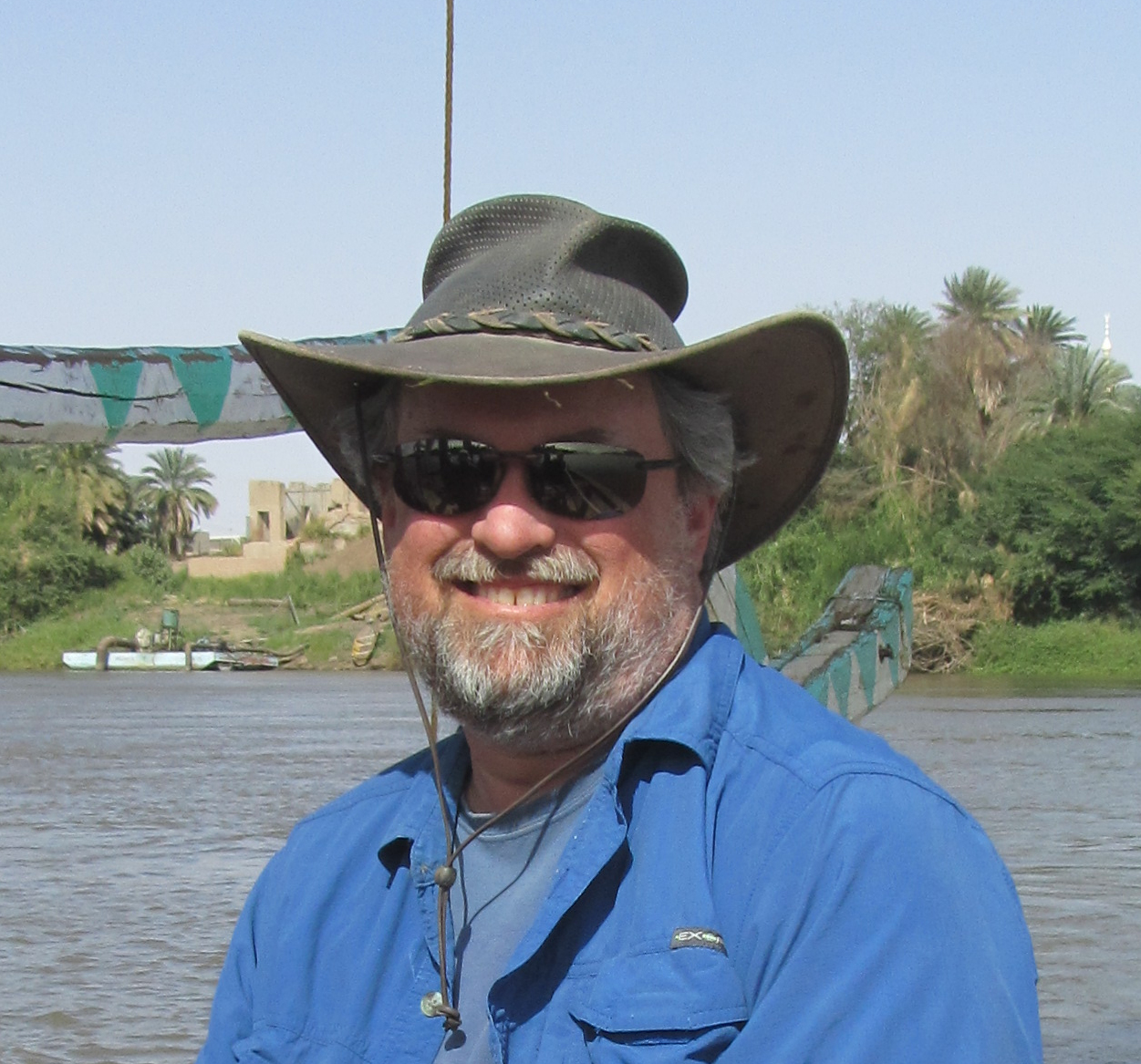
Professor Stuart Smith Featured on National Geographic's Voices Blog
National Geographic explorer Michele Buzon is co-director with Stuart Tyson Smith at Tombos, an archaeological site located at the Third Cataract of the Nile River in modern-day Sudan. Tombs dating to the New Kingdom (mid-18th Dynasty) through the Napatan period are present, documenting the interaction and entanglement of Egyptian colonists and local Nubians during these major sociopolitical changes in the region.
Continue Reading Professor Stuart Smith Featured on National Geographic's Voices Blog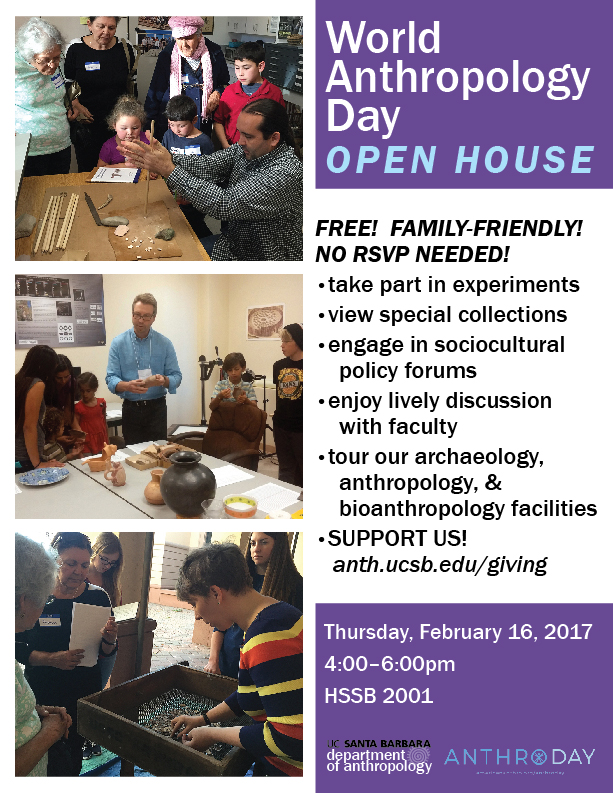
World Anthropology Day
This family-friendly event on Thursday, February 16th offers behind-the-scenes tours of labs and other activities in the Humanities and Social Sciences Building.
Continue Reading World Anthropology Day
Professor Hoelle Featured in Sapiens
Daily life in the remote gold-mining camps of the Amazonian rainforest is difficult, dirty, and sometimes treacherous. But that’s only part of the story.
Continue Reading Professor Hoelle Featured in Sapiens

Graduate Colloquium
Plans vs. Reality: Evaluating Wari Imperial Expansion to Cajamarca, Peru
Patty Chirinos
During the Middle Horizon (AD 700-1100), a period characterized by an intensive cultural interaction between several polities, the Wari Empire emerged and expanded, extending its influence over the Central Andes. Wari colonial expansion had a profound impact on both the political structure and the daily activities of the local communities. Wari presence and influence have been correlated with significant changes in material culture, settlement patterns, productive activities, levels of social disruption, and the establishment of colonies. However, Wari expansion to northern Peru seems to have been markedly different: several monumental sites exhibiting the features of Wari imperial design were built and then hardly occupied. Colonies represent a high-risk investment in infrastructure and logistics, and most significantly represent power relationships and are imbued with them. Within this context, why such massive efforts and then such profound changes occurred? And why in this circumscribed region of the empire? In this presentation, I address these questions by documenting the briefly-occupied Wari colony of Yamobamba in the Cajamarca Basin, tracing the dynamic process of Wari occupation of Cajamarca, and providing a framework to understand why the politically-savvy Wari changed their course.
Food Insecurity at the Fringes: Reconsidering Contact and Coalescence in the North Carolina Piedmont During the Early Colonial Period
Mallory Melton
How do we come to understand the early colonial period as it was experienced at the fringes? In other words, how do we assess the impacts of colonial events on regions that were seldom visited by Europeans but nevertheless contained coalescent communities harboring refugees who understood firsthand the social, political, and economic destabilization set in motion by European contact? Employing a diachronic approach, this paper uses archaeobotanical, ceramic, and architectural data from the Wall, Jenrette, and Fredricks sites to assess the impacts of European contact on indigenous residents of the seventeenth-century North Carolina Piedmont. Archaeobotanical data reveal that occupants of the Jenrette site (A.D. 1650-1680) adopted risk-averse foodways, while ceramic and architectural evidence indicates that these changes likely occurred in the context of a coalescent village containing Occaneechi refugees who endured social, political, and economic challenges prior to arriving in the Piedmont. Drawing comparisons to the Cherokee, I suggest that Jenrette residents modified their foodways in reaction to personally-experienced crises and/or the volatility that plagued much of the Southeast during the colonial period. Finally, I call for a broad approach to evaluating colonial-period community formation processes that avoids limiting our vantage point to any one particular locale. Instead, I encourage exploration of the many overlapping and intersecting histories that played out across a social landscape of instability.
Continue Reading Graduate Colloquium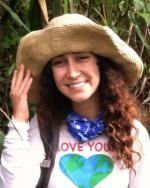
Graduate Student Sarah Alami Wins Award
Congratulations to Sarah Alami, who just won best student presentation/paper at the AAAs in Minneapolis (the Evolutionary Anthropology Society section).
Continue Reading Graduate Student Sarah Alami Wins Award
Graduate Colloquium
Cahokian Interactions in the Neighboring Lower Illinois River Valley: Recent Investigations at the Audrey-North Site
Christina Friberg
This presentation provides a summary of recent investigations at the early Mississippian (AD 1100–1150) Audrey-North Site (11Ge20) in the Lower Illinois River Valley (LIRV), addressing questions of social, political, and economic relationships and the culture contact dynamic during the Mississippian transition. Cahokia was the largest Pre-Columbian city in North America and its inhabitants spread aspects of Mississippian culture in much of the Midwest and Midsouth from AD 1050–1350. After decades of research, scholars still question how Cahokians initiated these distant interactions, and how and why local groups participated in them. It is clear that distance was a factor in in the scope of Cahokia’s widespread economic control and political influence. However, in order to understand the different ways in which groups negotiated contact with Cahokia, this project focuses on both political and economic interaction and the social implications for identity and daily practice in Cahokia’s immediate northern periphery, the LIRV, 100 km north. Ongoing analysis of community organization, foodways, pottery, and stone tools provides insight into the nature of Audrey site residents' ties to groups in Cahokia's American Bottom region.
Coffee and snacks will be provided courtesy of AGSA, but you are encouraged to bring your lunch to this lunchtime talk series.
Continue Reading Graduate Colloquium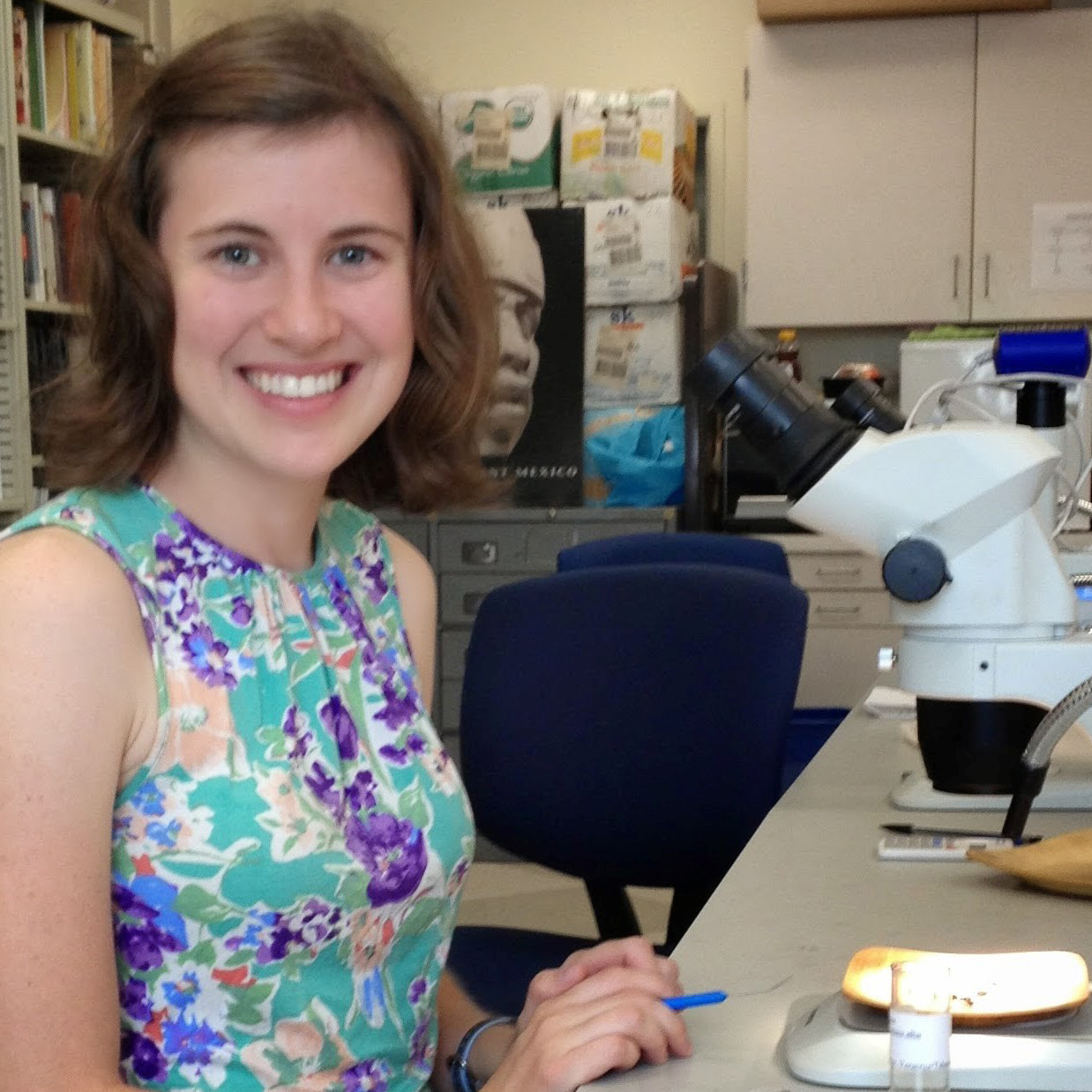
Graduate Student Mallory Melton Wins Award
Congratulations to Mallory Melton for winning first place in the student paper competition at the 2016 annual meeting of the Southeastern Archaeological Conference!
Continue Reading Graduate Student Mallory Melton Wins Award
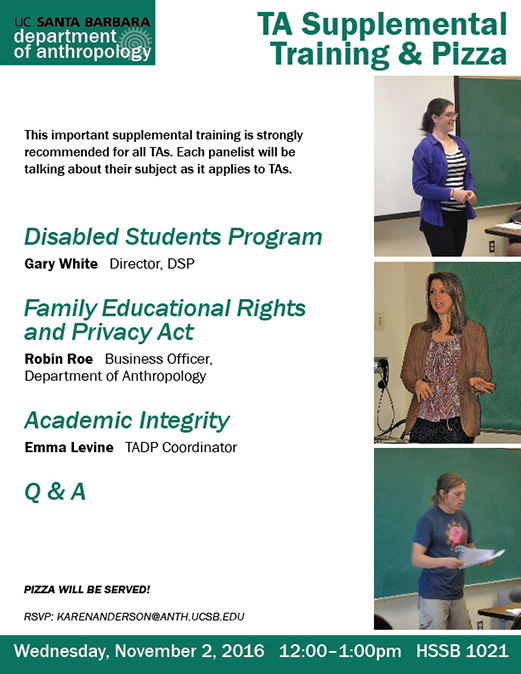
TA Supplemental Training & Pizza
This important supplemental training, strongly recommended for all TAs, will include:
* Disabled Students Program - Gary White, Director, DSP
* Family Educational Rights and Privacy Act - Robin Roe,
Business Officer, Department of Anthropology
* Academic Integrity - Emma Levine, TADP Coordinator
* Q & A
Each person will be talking about their subject as it applies to TAs. Pizza will be served!
RSVP: karenanderson@anth.ucsb.edu